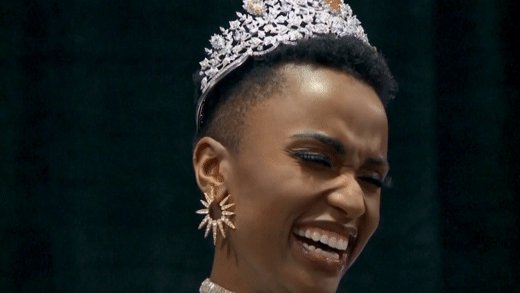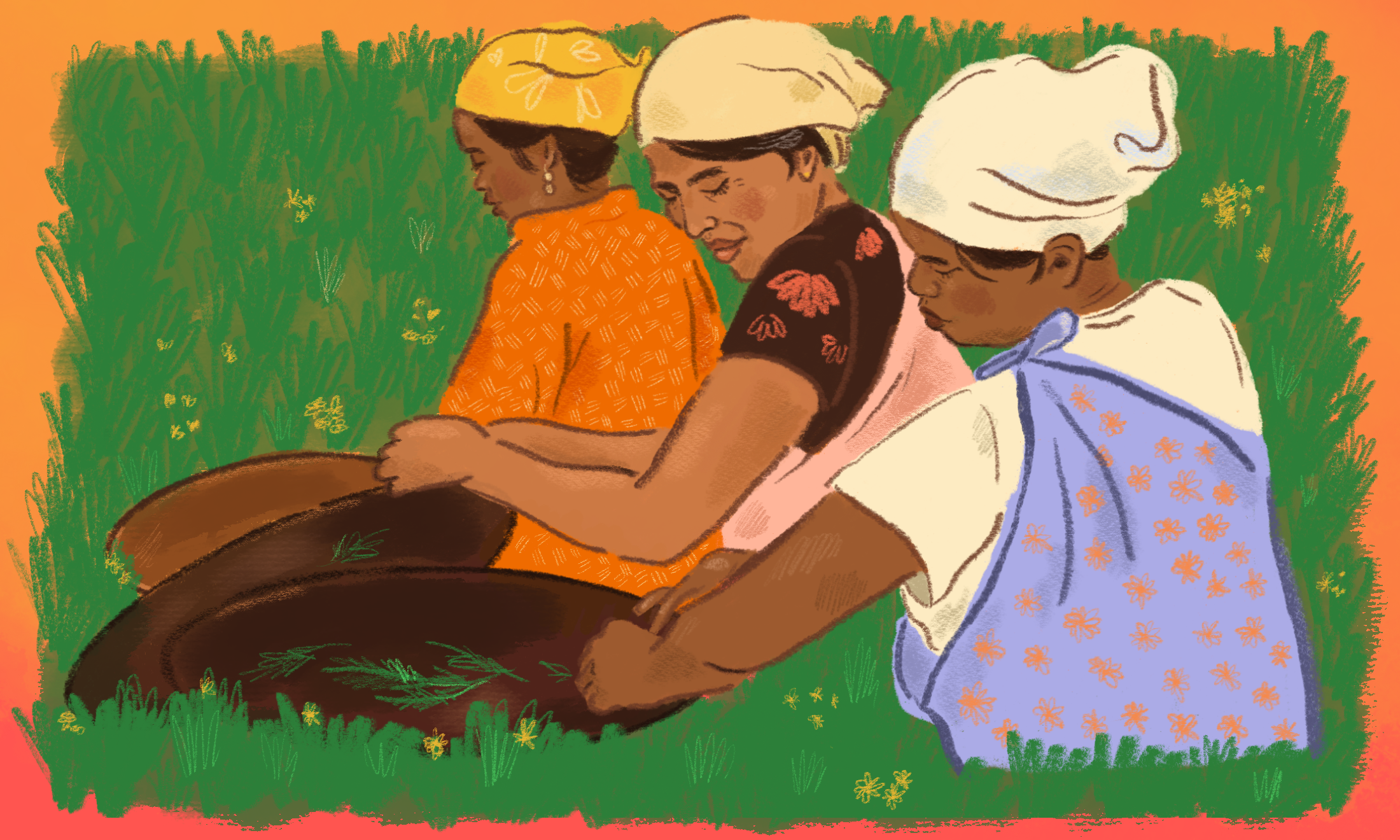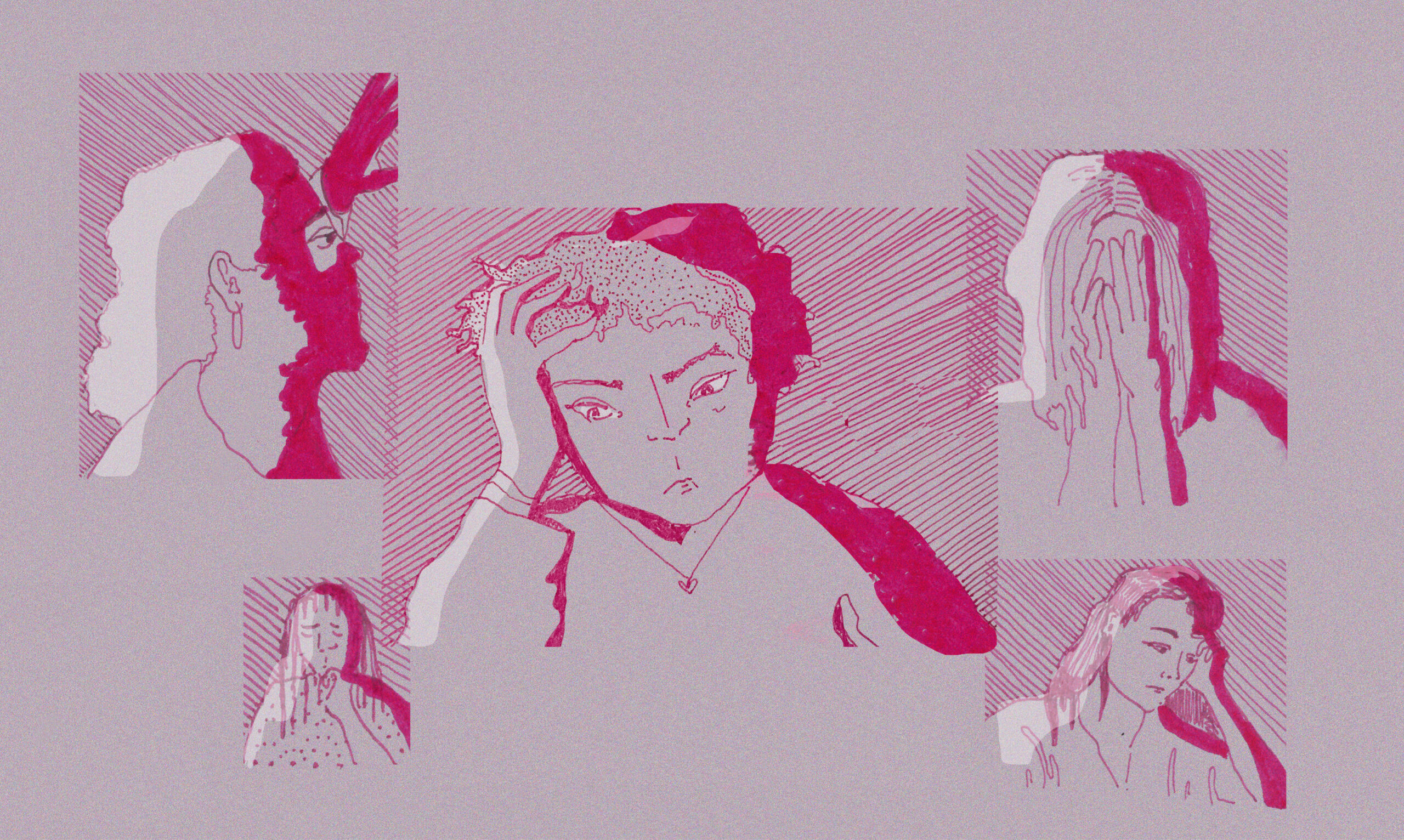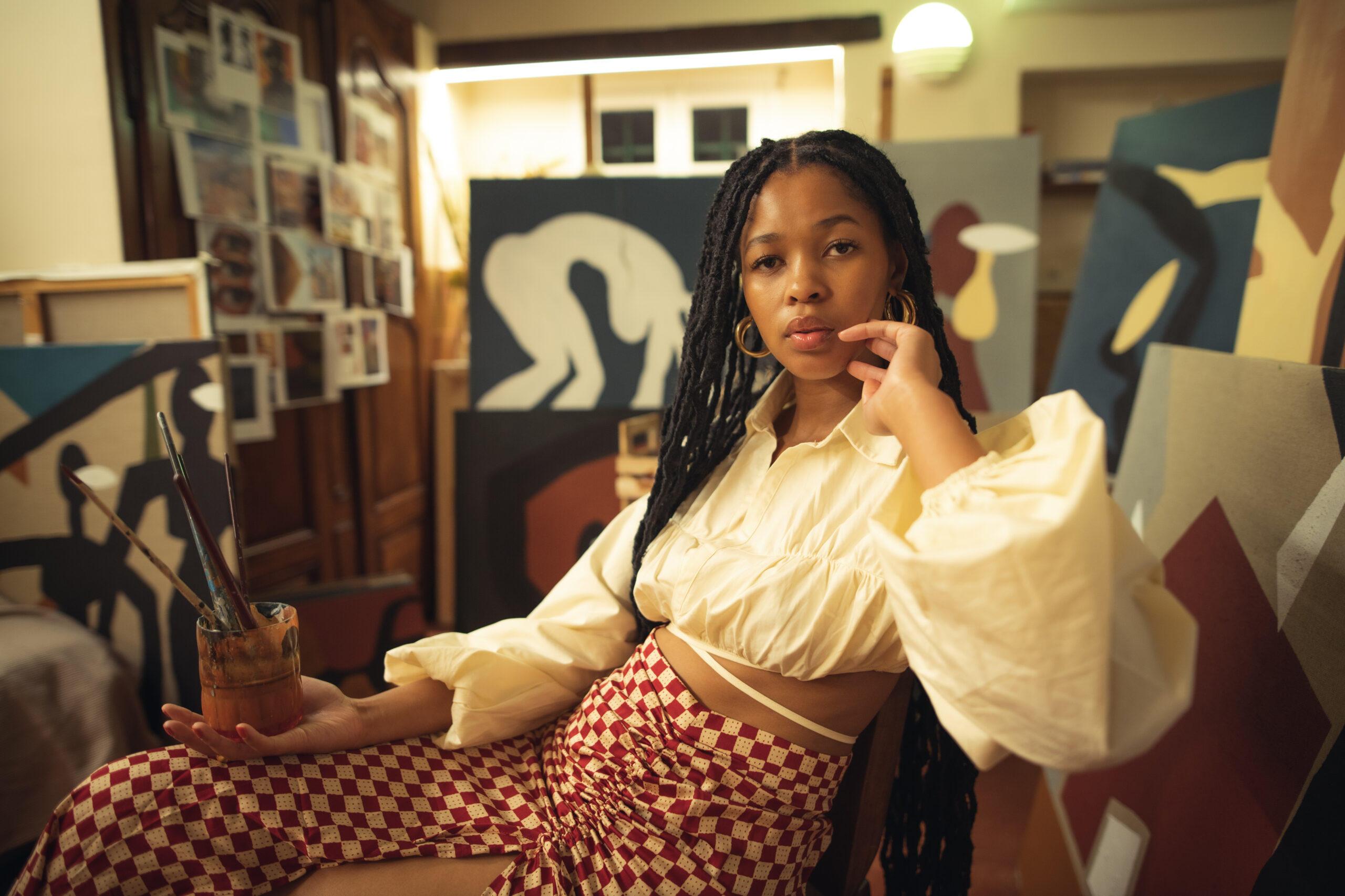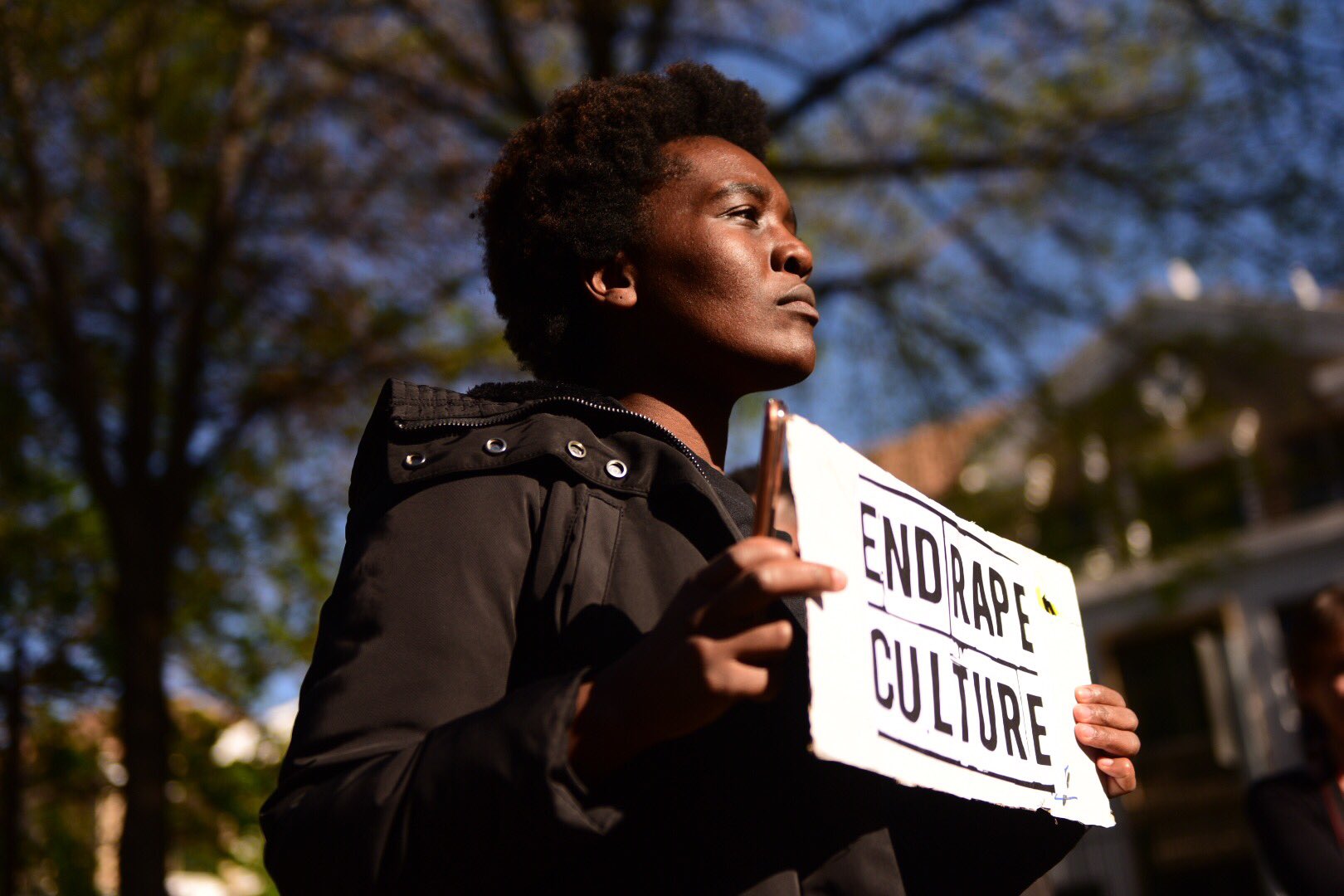
Women in South Africa are fighting for their safety as another student is murdered
Ponahalo Mojapelo
26 Sep 2019
Photography by Alet Pretorious
TW: Mentions of murder, sexual assault and rape
On 13 September in Johannesburg North, outside the stock exchange, a vigil has been in session since the early hours of the morning. More and more women are deciding to skip work to occupy the richest square mile in Africa, Sandton City, and shut the area down. The air feels damp with sadness but there’s a burning rage at our feet. Women and men in mourning, dressed in black, gather as the time to demonstrate draws near. The feeling of defeat dissipates as an estimated 10,000 of us break out into chant and song. For the first time in a long time walking in the street as a woman feels safe and empowering. We are our own protection. Poignantly, we sing a song to the tune of ‘Yawa Lembewu’ (Zulu for “the seed has fallen”): a protest song that is sung when a young person or someone with immense potential and promise has passed on. The lyrics have been adapted to, “Bambulele Uyinene eyolandi phasela” which translates to, “They killed Uyinene as she was fetching a parcel”.
***
Uyinene Mrwetyana was a 19-year-old student whose death on 24 August 2019 catalysed a response from South African women who have been overlooked for far too long. Led in song by other women, the message from this protest is simple: “Stop policing us! Stop raping us! Stop killing us!” It’s not surprising that Uyinene serves as a martyr. Her case has been highly publicised; she was killed by a man in a public post office, despite all the “safety measures” women in South African are warned to take, such as walking in groups, dressing modestly and visiting public places in daylight. During the two weeks Uyinene was missing her photo was shared and reposted over 30,000 times on social media. She was beautiful: a friend to many and a student at the University of Cape Town.
The painful reality of her story is that it wasn’t the first or the last of its kind. In fact, all it’s done is highlight the colossal size of the issue. Earlier this week, on 23 September, news broke of the tragic murder of another university student, 22-year-old Sinethemba Ndlovu. After getting into an argument with men who’d allegedly been harassing her co-workers, close sources say one of them tried to force himself onto her. While they wrestled, she ended being stabbed. She was rushed to the hospital where she later died. The story was shared and reposted by thousands, as messages of heartbreak and condolences started flooding the Twitter timeline under the hashtag #RIPSne. A vigil was held by fellow students, friends and family.
Like Uyinene and Sinethemba, one in five South African women will be victims of femicide in their lifetime. South Africa has also been identified as the most dangerous destination in the world for solo women travellers. There are 114 rapes reported nationally every day and more than one rape every 15 minutes, and these are just the reported incidents. This is why women are speaking out on the matter.
Unfortunately, the media’s response has been to hold women accountable for their own safety. Cosmopolitan SA, thought it a good idea to publish an article entitled Take Note of These Practical Tips to Stay Safe as a Woman in South Africa which reads distastefully in light of an event being mourned by the nation where a woman couldn’t have possibly been in control of her safety. Not only is the media responsible for this kind of victim-blaming, we’re still ruled by a government that went on to award a presidency to a man who was accused of rape.
In 2005, a 31-year-old woman called Fezekile “Khwezi” Kuzwayo accused Jacob Zuma, who until recently was president of South Africa, of raping her. He denied the allegations and was protected by the current ruling political party, the African National Congress (ANC), and by his supporters who held demonstrations in the thousands proclaiming his integrity. In 2006 he was acquitted of rape at trial and just three years later, in 2009, he was elected as president. Khwezi’s story became the biggest injustice against women in the country for many years.
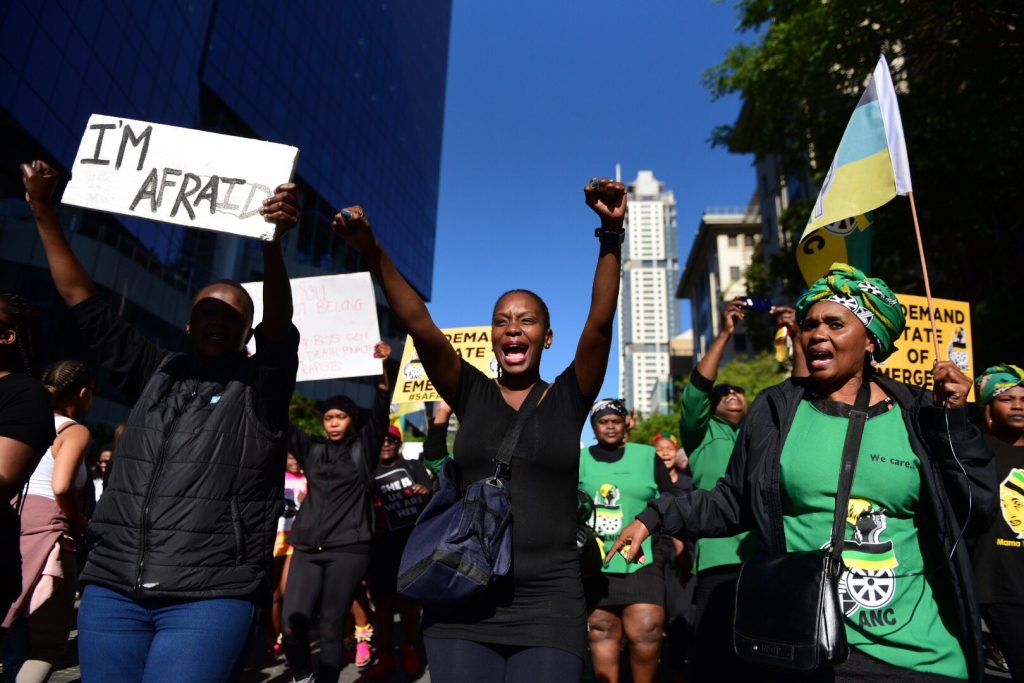
The climax of the protest against Uyinene’s murder at the stock exchange was when dozens erupted in chanting Khwezi’s name, who has become a martyr for South African womanhood since she died in 2016, having contracted HIV. After multiple attempts to locate the source of this outburst, I spotted Bathabile Dlamini, who is the president of the ANC Women’s League, hastily exiting the venue. The crowd was furious with how the politician had failed women in her country and continued to support a political party that doesn’t respect equal justice. What she thought would be her shining moment of public solidarity with fellow citizens was quickly extinguished by crowds yelling remarks like, “Go away, we’re on our own now!”
The groundswell of activism displayed at the epicentre of South Africa’s business sector gripped the attention of viewers and passersby in a tight, raised fist. The #ShutDownSandton hashtag made national news and soared to the number one spot in our national trending topics. Visuals from the demonstration spread like wildfire onto news publications and social media platforms. Women had put a complete halt on the traffic flow in and around Sandton’s Nelson Mandela Square.
The demonstration was hosted by several guest speakers; the chairperson of the Black Womxn Caucus, Keitumetsi Fatimata Moutloatse, and other activist leaders took the platform to spread words of strength, power and unity to the women in the audience. A moment of silence was dedicated to all the women we’ve lost due to femicide, and the women who have been victims of gender-based violence. It was difficult to tell just how big the crowd was from inside of it. The crowd chanted “I will not be next” and “Amandla, awethu” (power to the people).
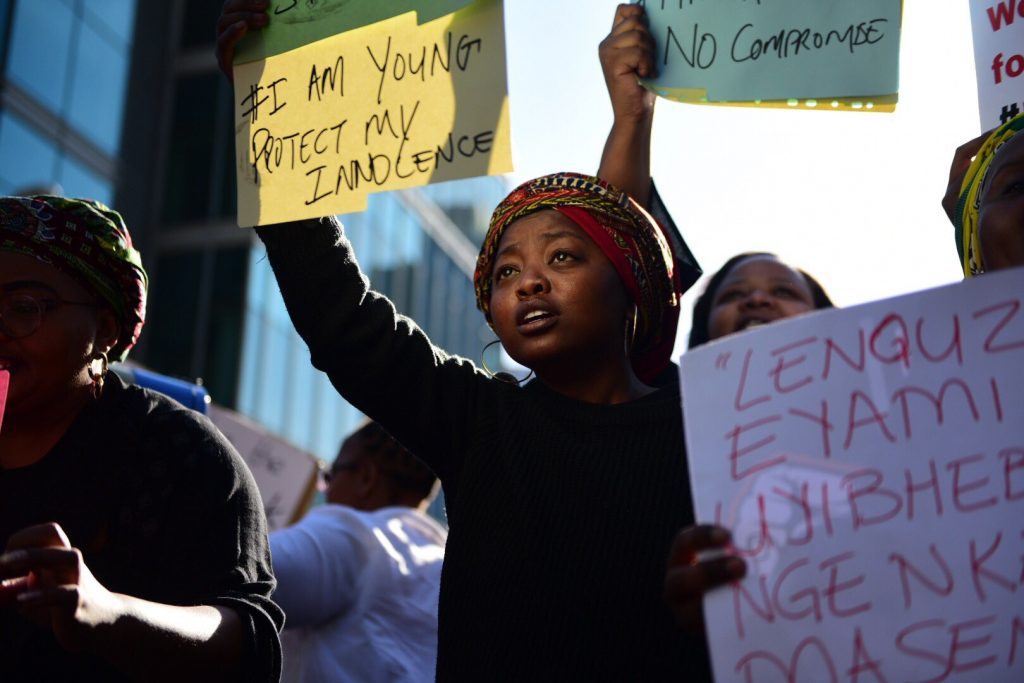
The consensus among South African women is that we’re not any more endangered now than we were before, we just now have a heightened awareness of the danger. We’re taught to survive men from an early age. There are routes we’re advised not to take and places we’re told not to go alone. More recently, women have been selling pepper spray disguised as lipstick with the objective of donating the proceeds to organisations supporting women who’ve been displaced by abuse. There was even a Kickstarter for a condom with teeth to entrap rapists. None of these tackle the primary cause: perpetrators of violence, who are disproportionately men.
Some were assured by President Cyril Ramaphosa in his speech addressing women’s request for a state of emergency: “In implementing our prevention measures, we must recognise that violence against women is not a problem of women. It is a problem of men.” One of the country’s provinces, Limpopo, has opened a court exclusively for sexual offences because of the sheer number of them. As we await tangible and legislative action from the government, women are still going missing and returning from their walks, schools, workplaces and nights out as survivors of sexual violence. As we wait for powerful words to turn into action, women have started WhatsApp support groups, where they share their locations as a precaution. However, a placard I came across at the protest reminded me that safety measures are a short-term response, but will never end gendered violence: “Would you think I was in danger if my live location was a post office?”
At all the vigils and protests I’ve attended, there were significantly fewer men than women. I don’t read this as apathy or neglect but rather men giving women the room to fully grieve and voice their lived experiences. Whether their limited presence is attributed to their solidarity or their own loss doesn’t matter. It’s always been clear that women’s safe space is among other women. Women are being killed by men.
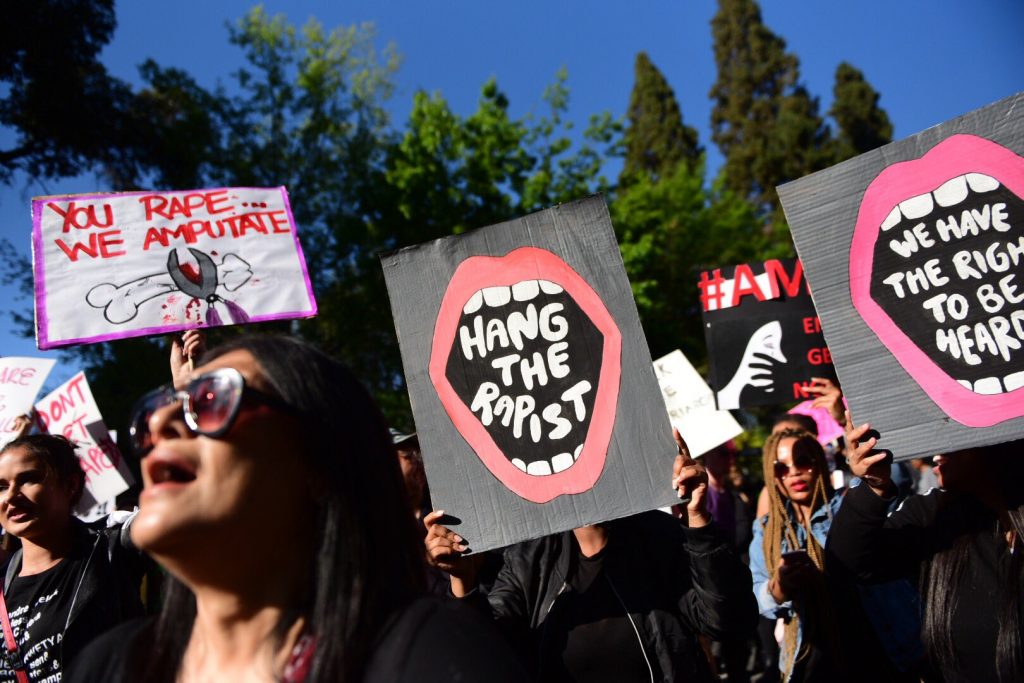
On the 2 September, a popular Twitter user decided to break the silence that protects rapists, sex offenders and abusers. He encouraged others to expose those they believed guilty of offences. The trend spread like wildfire and a Twitter page by the name @HelpSurvivors2 was created, through which people could anonymously DM the names of abusers to be exposed on the page, which has now been suspended from Twitter. Of the roughly 9,000 people who were identified as alleged abusers on Twitter, many were said to be repeat offenders. Some of them opted to make their social media accounts private and block their phone numbers. That’s the scariest part of being a woman in South Africa: that even after reliving your trauma in hopes to get some sort of justice, your perpetrator could easily avoid any consequence.
To say it’s a frightening existence to live as a South African woman would be an understatement. Along with our own traumas, we carry generational and associative trauma, thanks to men being excused for their abuse. The language, culture and laws protecting women’s bodies are minimal. Currently, South Africans are circulating a petition to put the list of sexual offenders on a public platform. Hearts broke around the country when the mother of Uyinene Mrwetyana said at her daughter’s televised funeral: “I’m so sorry I warned you about all other places but not the post office. I’m sorry I was not there to fight for you, my girl”.
If the country were to break out in riot every time a woman was abused or killed, we would not rest. We continue in solidarity with the families of those who have lost loved ones and to the women of our country. We need our government to carry out the justice owed to its most vulnerable citizens.


